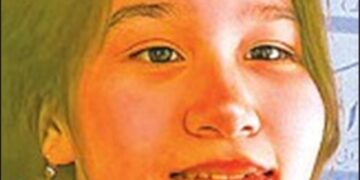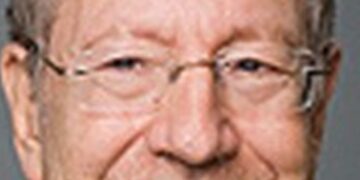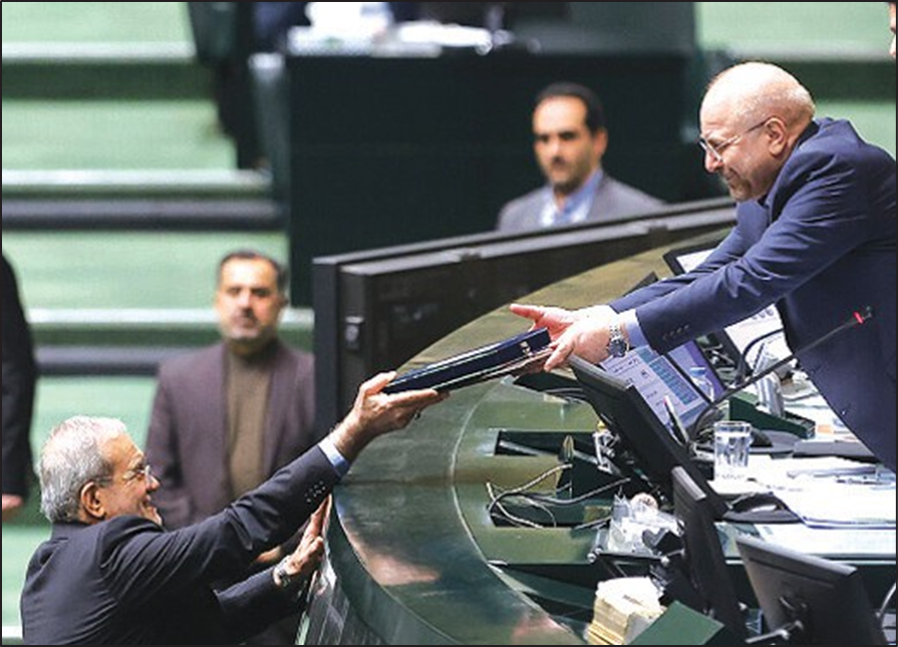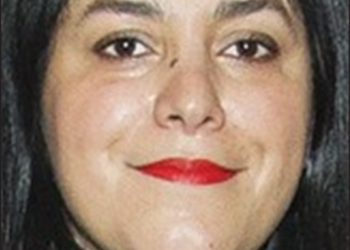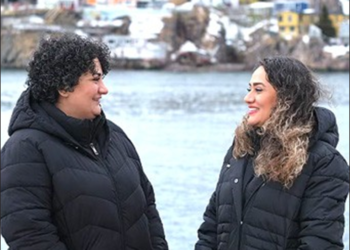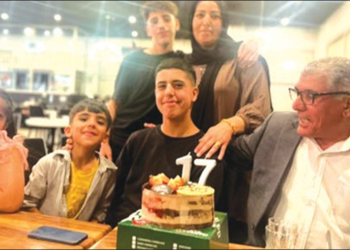several Iranian-Americans running for political office in the United States had been defeated one after another as she was elected overwhelmingly last Tueday to the City Council in Carlsbad, California, near San Diego.
Five other Iranian-Americans also sought elective office last Tuesday, with two of them coming close and the other three garnering dismal results.
Douglas ran two years ago for a seat on the Carlsbad City Council and failed to win by less than two percentage points. This time she cruised to victory with a whopping 63 percent of the voters backing her. It was a runaway victory in the city of 100,000, few of whom are Iranian. In fact, Dopuglas got a quarter again more votes than an incumbent City Council member, who came in second.
This makes Douglas the 11th Iranian-American to currently hold elective office in the United States or Canada—with all but three of the 11 in California. (See box below.)
Two others running in Southern California did well, but could not quite make it.
In Los Angeles County, Mark Ameli was seeking a judgeship on the Superior Court. He had the endorsement of the Los Angeles Democratic Party. In the June primary, he faced a heart-pounding night of vote counting, Randy Hammock led all evening, but was short of the 50 percent needed to avoid a run-off in November. Ameli was in fifth place early in the evening primary night, but then climbed to fourth, to third and late in the night to second place, barely making the run-off. In the run-off Tuesday, however, he again fell short of Hammock, who got 52.5 percent to Ameli’s 47.5 percent with almost 1.3 million votes cast.
South of Los Angeles, in Orange County, two Iranians were among seven candidates seeking two seats on the City Council. Shiva Farivar did well but fell short while Bijan Mazarji was a distant also-ran. Here are the vote totals with the top two elected. The top vote-getter is a long-time incumbent.
Larry Agran 16,694 23.5%
Jeff Lalloway 15,999 22.5%
Lynn Schott 14,207 20.0%
Shiva Farivar 13,097 18.4%
Chris Moore 6,195 8.7%
Bijan Mazarji 2,498 3.5%
Yunos Aksoy 2,315 3.3%
Since Irvine voters got to vote for two candidates, it is unlikely that Mazarji’s candidacy penalized Farivar.
In the biggest race in which an Iranian-American was participating, Farid Khavari was seeking to become governor of Florida. He started out running in the Democratic primary last spring, but was shunned by the Democratic establishment and decided to run as an independent.
He never caught on and ended up failing even to get 2/10ths of 1 percent cent of the vote, coming in seventh of seven candidates.
Rick Scott (R) 2,604,474 8.90%
Alex Sink (D) 2,540,599 7.70%
Peter Allen 123,047 2.31%
C.C. Reed 18,745 0.35%
Michael Arth 18,517 0.35%
David Imperato 13,577 0.25%
Farid Khavari 7,426 0.14%
The race between Scott and Sink was always seen as close. That makes it harder for an independent to get traction as voters see they can have a say in the outcome and realize that voting for a third-party candidate may mean throwing away their vote.
In the last race with an Iranian-American candidate, Tony Fayyazi was running for state superintendent of education in South Carolina. He came in fifth and last with 1.36 percent of the vote.
So, Douglas emerged as the sole Iranian winner of this election day—but a winner by a big margin.
Douglas, 60, was born in Iran where she put herself through college, earning a B.A. in English and French literature. She then worked in Iran as a journalist, reporter, writer, translator and interpreter.
She married Rich Douglas, an American working in Iran for Bell Helicopter. After the revolution, she immigrated to California with her husband and son. There she attended Mira Costa College and Palomar College and obtained her real estate license and began working as a real estate agent. She later received a master’s degree in philosophy from San Diego State University.
Douglas, who currently owns CDS Printing with her husband, has been active in the community life of Carlsbad, located 30 miles north of San Diego. She has served as chairman of the board of the Carlsbad Chamber of Commerce and served on the board of directors of the Boys and Girls Club of Carlsbad, the Carlsbad Library and Arts Foundation, and the Carlsbad High Noon Rotary, among other organizations. Such civic activity is most common route to local elective office in the United States.
The city council is composed of five members chosen in a non-partisan election.
In Iran, Douglas worked as an English translator for the Iranian military, assisting Iranian generals during discussions with American defense contractors. It was there that she met her husband. After the revolution, she said she wanted to flee the country, but she feared the new government wouldn’t let her take her baby with her. Eventually, her husband was able to alter his passport to make it look like their son hadn’t been born in Iran.
They fled to the airport in the middle of the night, hoping to board the last flight out. Douglas said revolutionaries almost held her from the flight—gunmen pulled her out of line at the airport and spent hours unsuccessfully trying to figure out whether she worked for the Shah.
“After two and a half, three hours, he looks up and says, ‘You can go,’ and throws my passport at me. My knees were so weak, I couldn’t stand,” Douglas recalled.
“Never for a single day since I arrived in the United States—not a single day—have I taken for granted the freedoms and quality of life in our country and our community. I am living the American dream; here I have found security, freedom and opportunity. Gradually, I have also found a sense of belonging. I arrived as a woman with no country … and came to love this country.”
She only returned home once—in 2003, after her father died—but said it no longer felt like home. “I feel that here [in America] I am home.”
Douglas makes much of her Iranian origins in her campaign material. She states where she was born in the very first sentence of the biography posted on her campaign website.
The city of Carlsbad does not have a large Iranian population. The city prints its official election materials in English, Spanish, Tagalog (the main language of the Philippines) and Vietnamese.
11 Iranians hold elective office
With the elections last Tuesday, there are now 11
Iranians holding elective office in North
America—eight in California, two in Canada and one in Texas.
Of the 11, four were born in the United States and seven in Iran; four have American mothers. The eight Americans were all elected in non-partisan contests; the two Canadians won in partisan elections. The 11 are:
Reza Moridi, born in Urumiyeh, was elected in October 2007 as a member of the 107-seat Ontario provincial legislature from Greater Toronto. He is a Liberal, which is the governing party in the province. He was the first Iranian elected office-holder in Canada.
Amir Khadir, born in Tehran, was elected in December 2008 to the provincial legislature of Quebec. He was the first member of Quebec Solidaire, which supports Quebec independence, ever elected in the province. He represents parts of Montreal.
Sheila Meskin Hanson has the largest electorate of any Iranian-American as a Superior Court judge in Orange County, California. The county has a population of 3 million. She was elected in November 2006. Her father came to the United States at the age of 16 and married an American. Sheila spent a summer in Iran as a child with her grandparents.
Andy Manssourian, an Armenian born in Iran who came to the United States with his family in 1977, was elected to join Hanson on the Orange County Superior Court in June 2010. He won 57 percent of the vote.
Susan Etezadi was elected in June 2006, also as a Superior Court judge, in San Mateo County, California. Located in northern California, it has a population of 700,000. Born in the United States and with an American mother, she lived as a child in Iran. She also argued a case for her parents before the Iran-U.S. Claims tribunal in The Hague.
Ross Mirkarimi was elected in 2004 and re-elected in 2008 as one of 11 county supervisors of San Francisco County, population 750,000. He was born in Chicago to an Iranian father and Russian-American mother.
Farrah Douglas was elected overwhelmingly in November 2010 to the City Council of Carlsbad, California, a community of 100,000 near San Diego. She ran two years earlier and lost in a close race. Douglas was born in Iran and mastered English there, becoming a translator. She married an American working for Bell Helicopter and they left Iran after the revolution.
Farid Javandel was elected and re-elected in 2004 and 2008 to the City Council of Albany, California, a community of 18,000 people on the east side of San Francisco Bay. He was born in Shiraz to an Iranian father and American mother.
Jimmy Delshad, born in Shiraz, was elected in 2003 and re-elected in 2007 to the five-member City Council of Beverly Hills, California. Adjacent to Los Angeles, it has a population of 34,000. He has also served as mayor for two one-year terms. In his 2007 re-election race, Delshad defeated two other Jewish Iranian-Americans.
Nooshin Meshkaty was elected to the five-member school board in Beverly Hills in November 2005 and became chairman of the board for 2009. Tehran-born, she came to the United States in 1978.
Amir Omar was elected a member of the non-partisan City Council in Richardson, Texas, population 100,000, in May 2009. He was born in Texas to an Iranian mother and a Palestinian father. Omar previously ran unsuccessfully for the Republican nomination for a seat in Congress.
Natasha Kamrani won election in December 2005 but retired at the end of 2009 after one term. She had held one of nine seats on the Houston School Board. It is the seventh largest school system in the United States. The city has a population of 2 million. Kamrani was born in the United States to an Iranian father and an American mother. In her 2005 School Board race, she was attacked as a “foreigner” by her Hispanic opponent.



